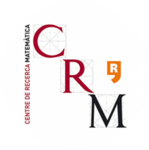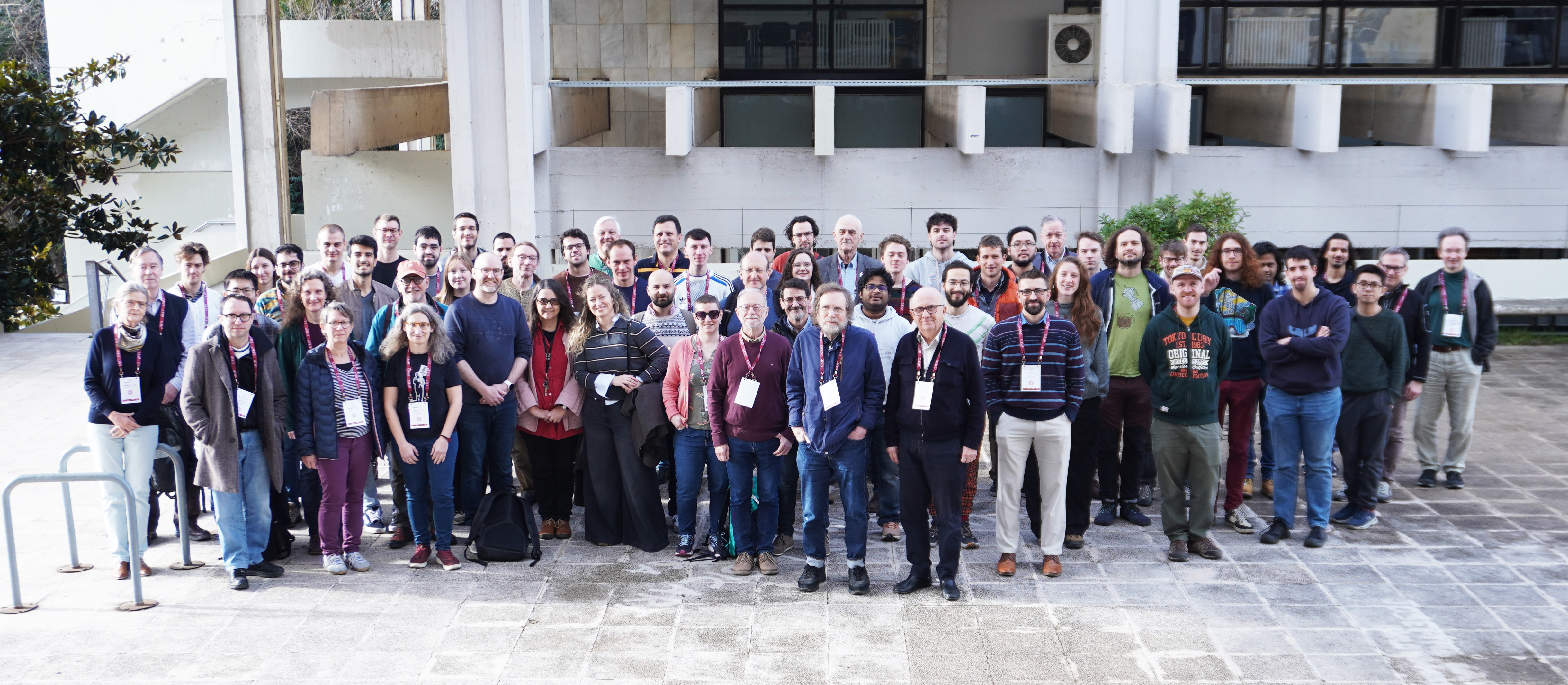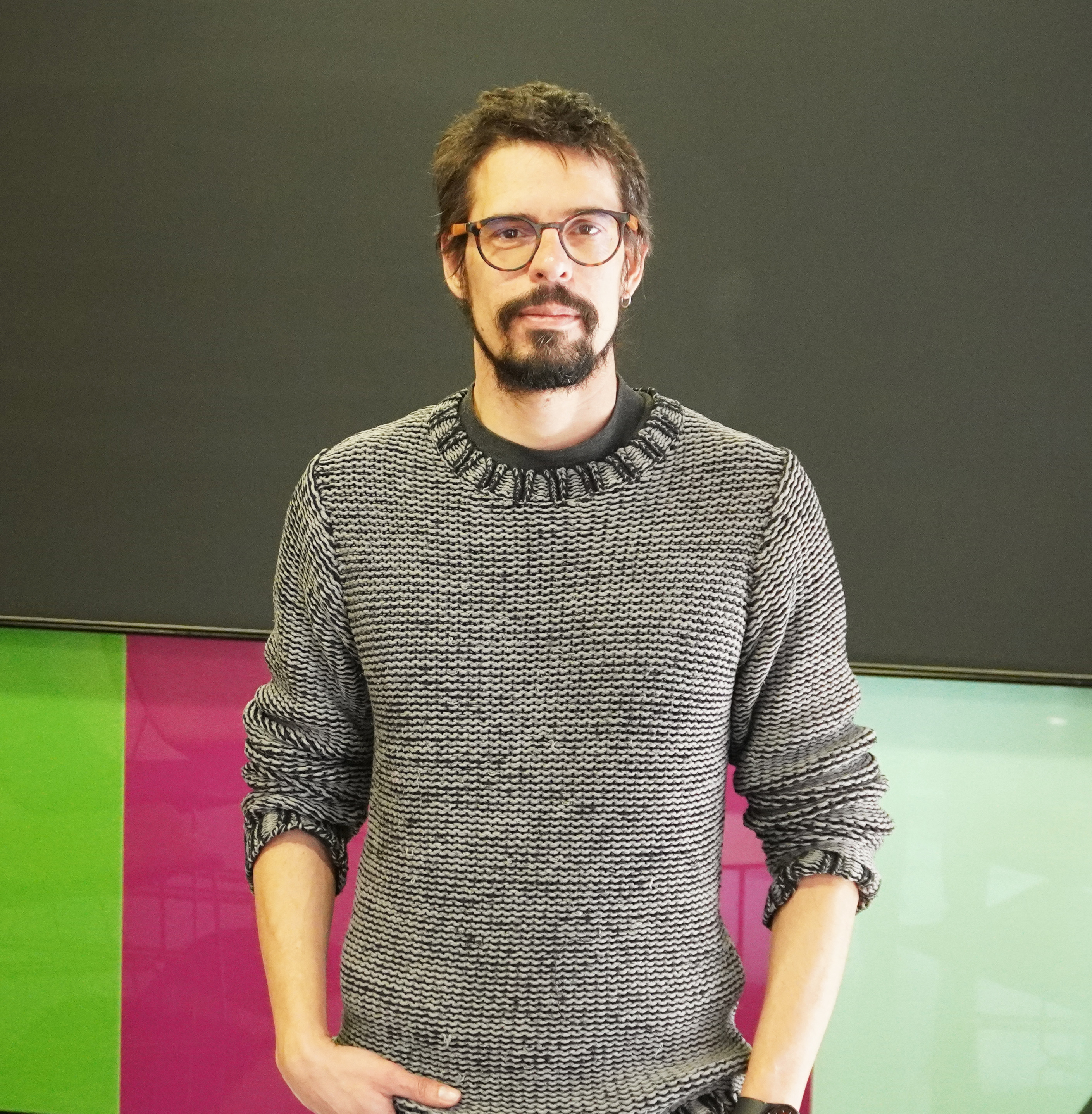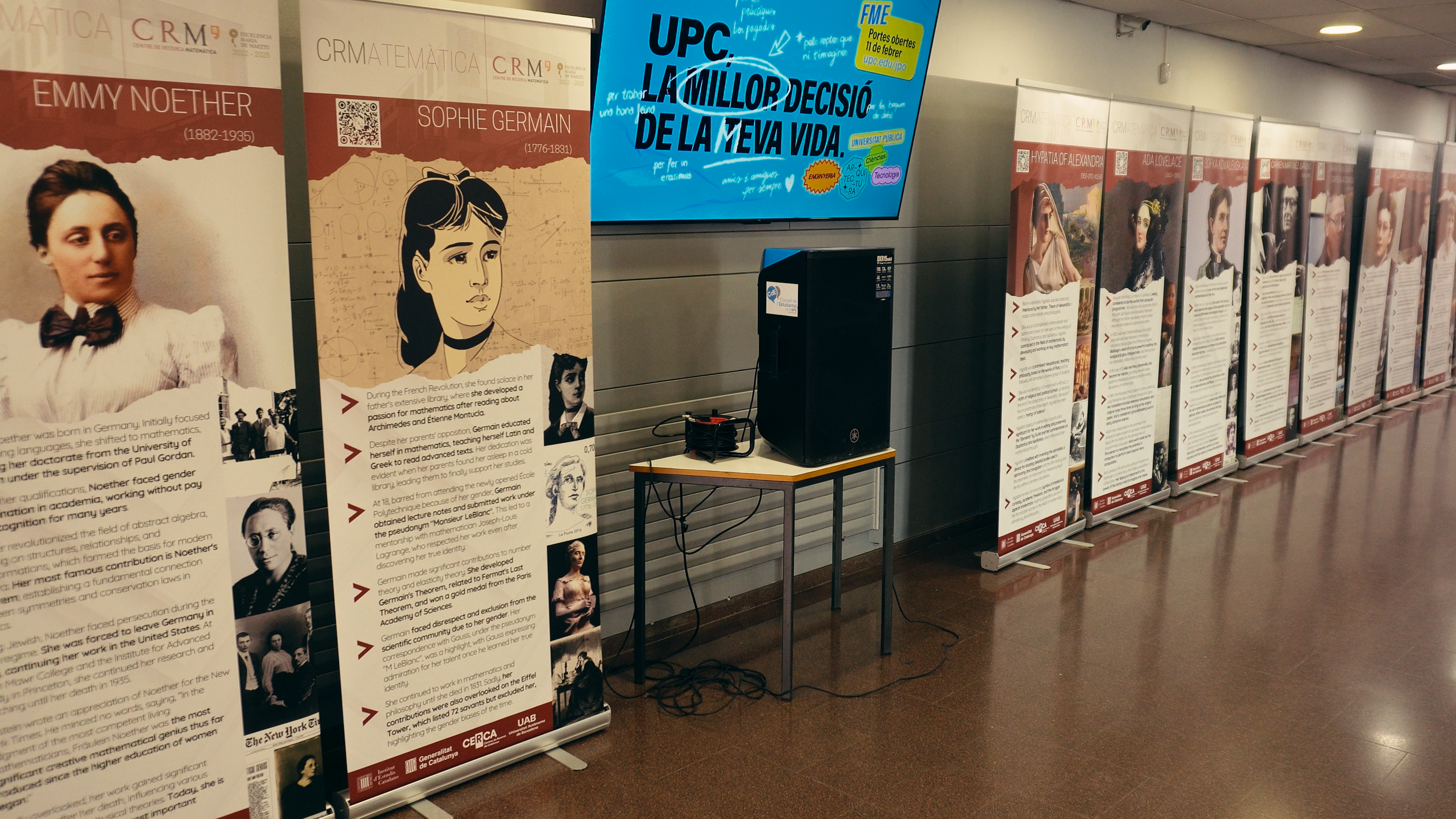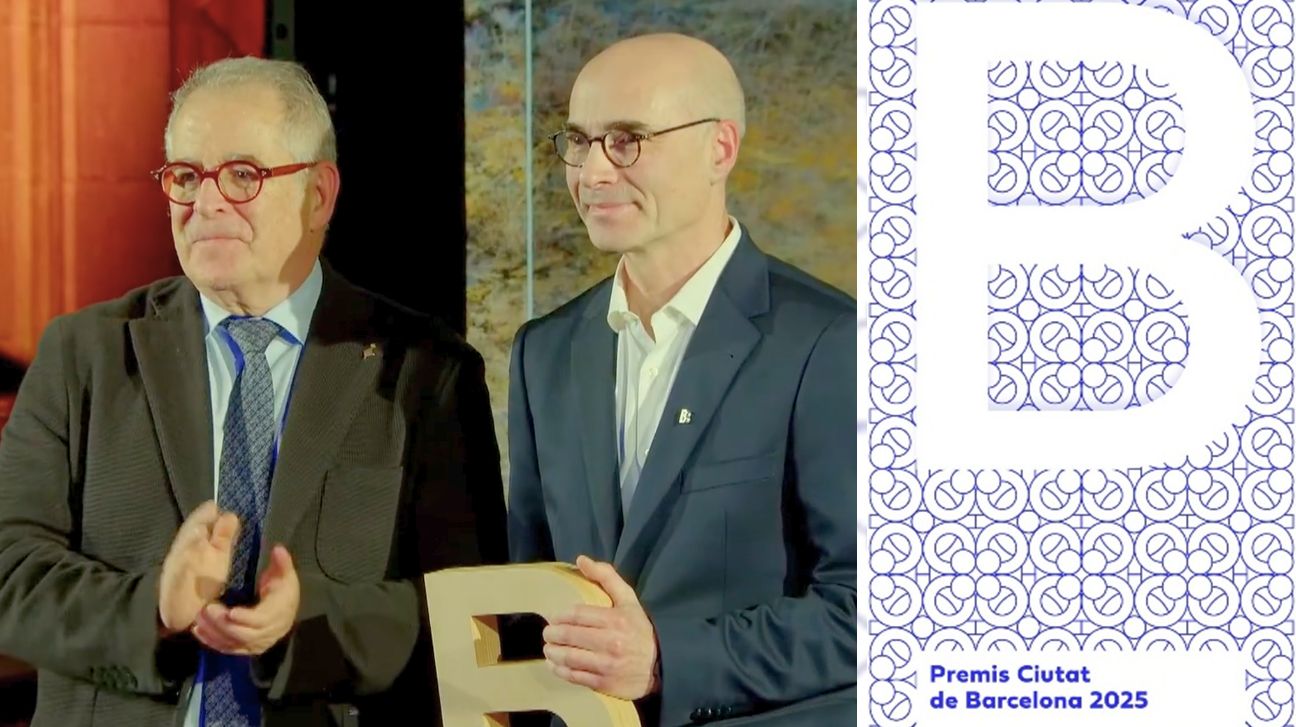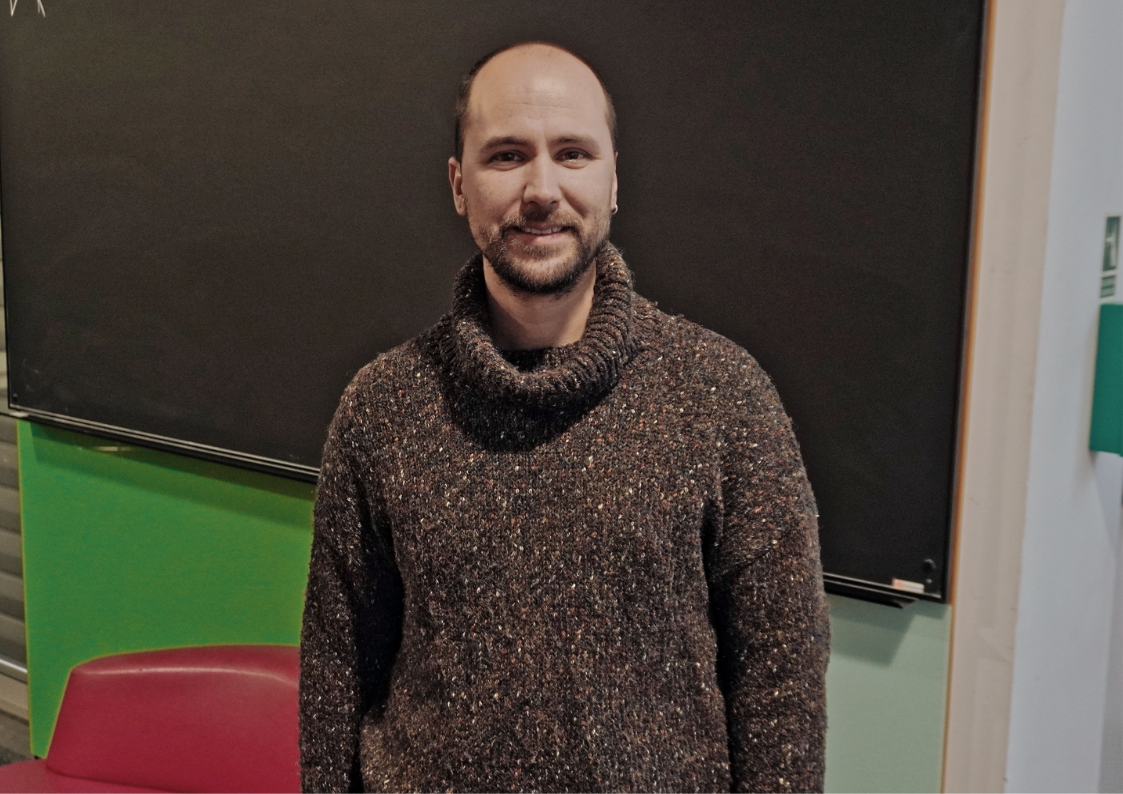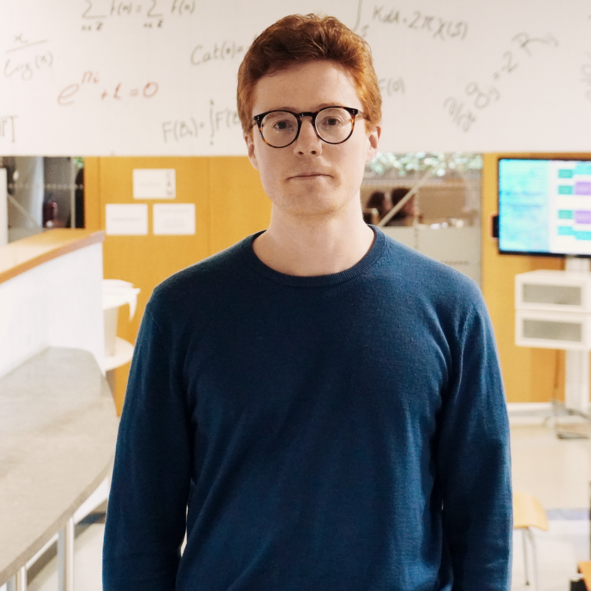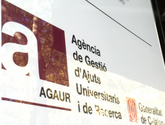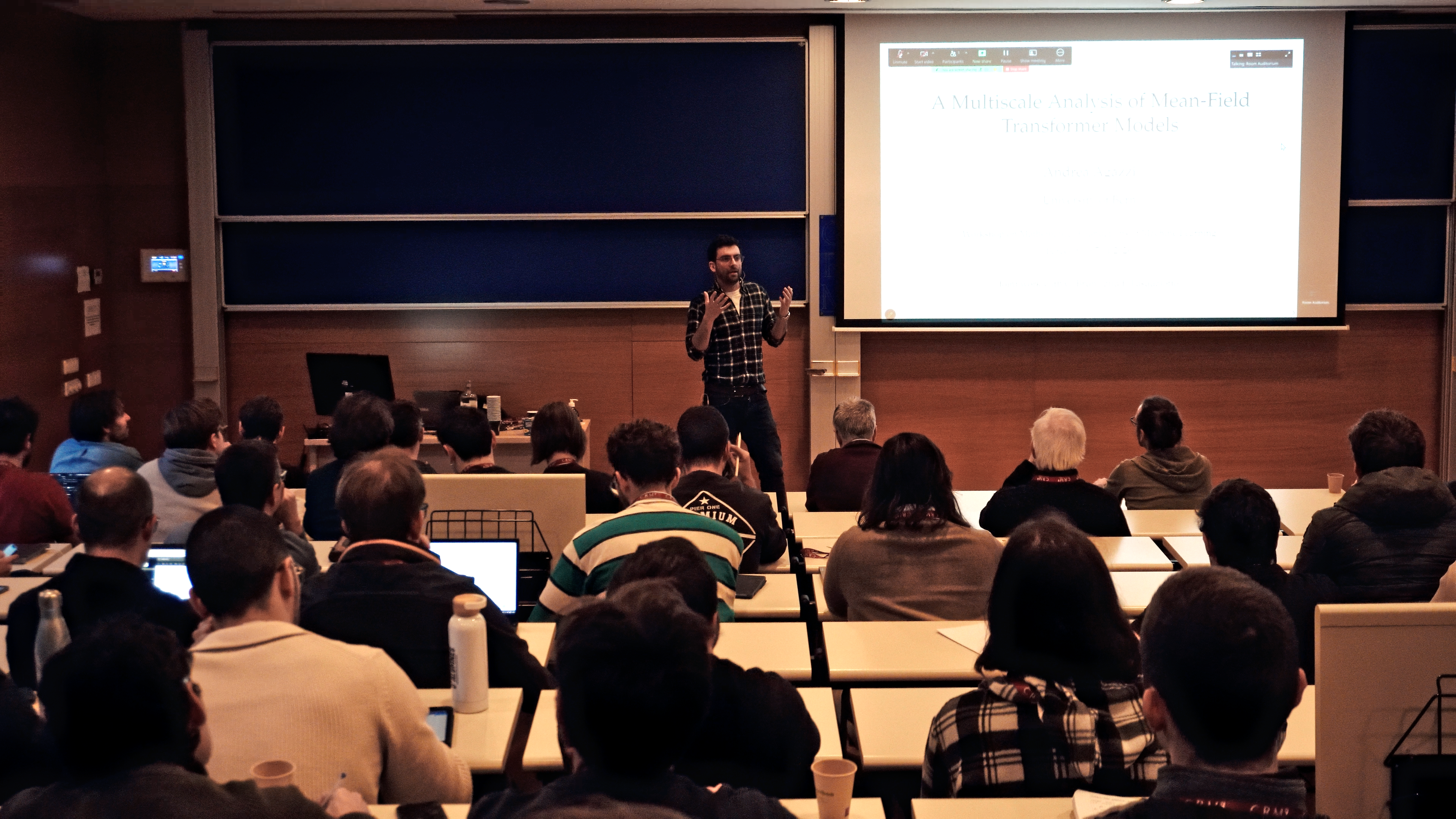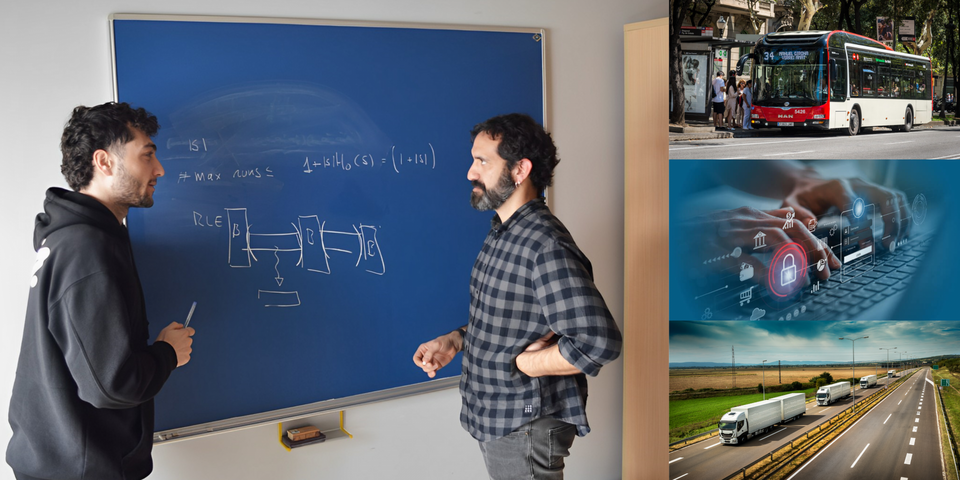
In today’s world, interdisciplinary collaboration is essential for scientific progress, particularly in mathematics. Mathematics plays an increasingly critical role in addressing industrial and societal challenges. The Math-In network, a Spanish initiative, spearheads this endeavour by bringing together mathematicians and professionals from industry and social initiatives. The network encompasses 40 research groups and nodes from universities and research centres across Spain, including the Centre de Recerca Matemàtica (CRM).
Founded in 2011, the Red Española Matemática-Industria (Math-in) aims to connect mathematicians with industry and society to facilitate the transfer of mathematical knowledge and expertise. The network serves as a bridge between academic research and real-world applications, addressing pressing issues in various sectors, including healthcare, energy efficiency, and environmental sustainability.
“Math-In seeks to connect research groups and/or transfer units from various universities with a clear commitment to transferring mathematics to industry, but also to society at large,” explains David Romero, head of the Knowledge Transfer Unit (KTU) at CRM. “This is done by inviting companies to present their problems to members of the network, enabling different research groups to propose solutions for specific real-world challenges. Additionally, Math-In works to foster synergies among the groups to tackle more complex projects.”
David Romero, who also serves as the treasurer of Math-In, acknowledges the challenges that the network faces. “Researchers are primarily tasked with producing research outputs, such as scientific papers. Engaging them in knowledge transfer activities and projects requires establishing mutually beneficial collaborations. Moreover, Math-In needs ongoing resources to maintain its operations. Efforts like Math-In are also crucial for promoting knowledge transfer at the academic level, ensuring that undergraduate and master’s students recognize knowledge transfer as a viable aspect of the research career.”
Regarding the impact of promoting knowledge transfer activities among students, Romero adds that “some students may be more inclined to pursue a PhD in mathematics if they are aware of the relevance of knowledge transfer. Why not pursue an industrial doctorate, where the student has the opportunity to collaborate with industry? The ‘industrial’ adjective doesn’t make the doctoral program any better or worse; it simply means that the research is more focused on applications for specific industrial problems. Many problems from industry are intriguing to approach from a mathematical perspective.”
Expanding the Reach of the CRM Knowledge Transfer Efforts
Participating in Math-In aligns with one of CRM’s strategic goals: developing innovative mathematical solutions grounded in rigorous theoretical research for real-world applications. The centre particularly emphasizes tailoring well-founded models to solve emerging problems with significant societal impacts. This approach leverages proven mathematical research to create concrete solutions that effectively address pressing societal challenges.
“Being part of the Math-In network helps us expand our network beyond our immediate area of operation,” Romero explains. “This means we have the opportunity to find collaborative projects with companies and institutions from other parts of Spain and also to connect with other networks operating at a European level.”
CRM has successfully participated in major projects through Math-In. “Currently, we are working on a logistics sector project that involves the CRM and research groups from other institutions. This collaboration has also opened doors to connect with institutions and groups that we might not have been able to collaborate with otherwise.”
CRM’s philosophy is that almost every problem can be approached mathematically. The centre’s involvement in Math-In focuses on developing bespoke mathematical models that accurately reflect the unique challenges faced by enterprises across various sectors. This process begins with a deep dialogue between CRM mathematicians and industry professionals to ensure a thorough understanding of the specific issues at hand.
This customized methodology extends from problem formulation to simulation and numerical analysis, providing targeted solutions. Areas such as cost optimization, algorithm design, task allocation, logistics, and data analysis are just a few examples where CRM’s expertise has been instrumental.
“It is a well-known adage that mathematics is everywhere,” Romero remarks. “But what do we mean when we say that? When evaluating knowledge transfer efforts in research, people often focus on quantifiable metrics, such as the number of spin-offs. However, when it comes to transferring knowledge in mathematics, the results of that knowledge may take time to be visible. The outcome is not always straightforward.”
Collaboration Beyond Problem-Solving
CRM’s collaboration with industry partners goes beyond problem-solving. The centre offers specialized training on specific topics and participates as an academic partner in competitive innovation projects. This multifaceted approach not only solves immediate challenges but also equips businesses with the knowledge and tools to leverage mathematical methods independently. CRM’s involvement in the Math-In network is not in isolation. Being part of the CERCA network and its status as a system centre provides CRM with access to a broader spectrum of research facilities and expertise. This integration enriches the projects undertaken by CRM, offering a more comprehensive and multidisciplinary perspective.
“One of the biggest challenges we face in our work is finding a suitable counterpart on the other side of the table,” Romero explains. “By that, I mean someone who not only cares about the outcome of a given project but also about the process itself. We try to avoid projects where the sole objective is to make a product. We believe that knowledge generation is an integral part of knowledge transfer, and for that, we need to work with people who share this same value. We also strive to create a common language so that people from different expertise levels and backgrounds can find it easier to collaborate. In particular, through Math-In, we advocate for finding ways to collaborate with research institutions from other scientific fields outside of mathematics.”
CRM’s commitment to bridging mathematics and real-world applications is exemplified by its participation in the Math-In network. This initiative demonstrates the centre’s dedication to leveraging mathematical expertise to address pressing societal challenges and contribute to innovation and progress.
Subscribe for more CRM News
|
|
CRM CommPau Varela & Mariona Fucho
|
When Symmetry Breaks the Rules: From Askey–Wilson Polynomials to Functions
Researchers Tom Koornwinder (U. Amsterdam) and Marta Mazzocco (ICREA-UPC-CRM) published a paper in Indagationes Mathematicae exploring DAHA symmetries. Their work shows that these symmetries shift Askey–Wilson polynomials into a continuous functional setting,and...
Homotopy Theory Conference Brings Together Diverse Research Perspectives
The Centre de Recerca Matemàtica hosted 75 mathematicians from over 20 countries for the Homotopy Structures in Barcelona conference, held February 9-13, 2026. Fourteen invited speakers presented research spanning rational equivariant cohomology theories, isovariant...
Three ICM speakers headline the first CRM Faculty Colloquium
On 19 February 2026, the Centre de Recerca Matemàtica inaugurated its first CRM Faculty Colloquium, a new quarterly event designed to bring together the mathematical community around the research carried out by scientists affiliated with the Centre. The CRM auditorium...
Trivial matemàtiques 11F-2026
Rescuing Data from the Pandemic: A Method to Correct Healthcare Shocks
When COVID-19 lockdowns disrupted healthcare in 2020, insurance companies discarded their data; claims had dropped 15%, and patterns made no sense. A new paper in Insurance: Mathematics and Economics shows how to rescue that information by...
L’exposició “Figures Visibles” s’inaugura a la FME-UPC
L'exposició "Figures Visibles", produïda pel CRM, s'ha inaugurat avui al vestíbul de la Facultat de Matemàtiques i Estadística (FME) de la UPC coincidint amb el Dia Internacional de la Nena i la Dona en la Ciència. La mostra recull la trajectòria...
Xavier Tolsa rep el Premi Ciutat de Barcelona per un resultat clau en matemàtica fonamental
L’investigador Xavier Tolsa (ICREA–UAB–CRM) ha estat guardonat amb el Premi Ciutat de Barcelona 2025 en la categoria de Ciències Fonamentals i Matemàtiques, un reconeixement que atorga l’Ajuntament de Barcelona i que enguany arriba a la seva 76a edició. L’acte de...
Axel Masó Returns to CRM as a Postdoctoral Researcher
Axel Masó returns to CRM as a postdoctoral researcher after a two-year stint at the Knowledge Transfer Unit. He joins the Mathematical Biology research group and KTU to work on the Neuromunt project, an interdisciplinary initiative that studies...
The 4th Barcelona Weekend on Operator Algebras: Open Problems, New Results, and Community
The 4th Barcelona Weekend on Operator Algebras, held at the CRM on January 30–31, 2026, brought together experts to discuss recent advances and open problems in the field.The event strengthened the exchange of ideas within the community and reinforced the CRM’s role...
From Phase Separation to Chromosome Architecture: Ander Movilla Joins CRM as Beatriu de Pinós Fellow
Ander Movilla has joined CRM as a Beatriu de Pinós postdoctoral fellow. Working with Tomás Alarcón, Movilla will develop mathematical models that capture not just the static architecture of DNA but its dynamic behaviour; how chromosome contacts shift as chemical marks...
Criteris de priorització de les sol·licituds dels ajuts Joan Oró per a la contractació de personal investigador predoctoral en formació (FI) 2026
A continuació podeu consultar la publicació dels criteris de priorització de les sol·licituds dels ajuts Joan Oró per a la contractació de personal investigador predoctoral en formació (FI 2026), dirigits a les universitats públiques i privades del...
Mathematics and Machine Learning: Barcelona Workshop Brings Disciplines Together
Over 100 researchers gathered at the Centre de Recerca Matemàtica to explore the mathematical foundations needed to understand modern artificial intelligence. The three-day workshop brought together mathematicians working on PDEs, probability, dynamical systems, and...

